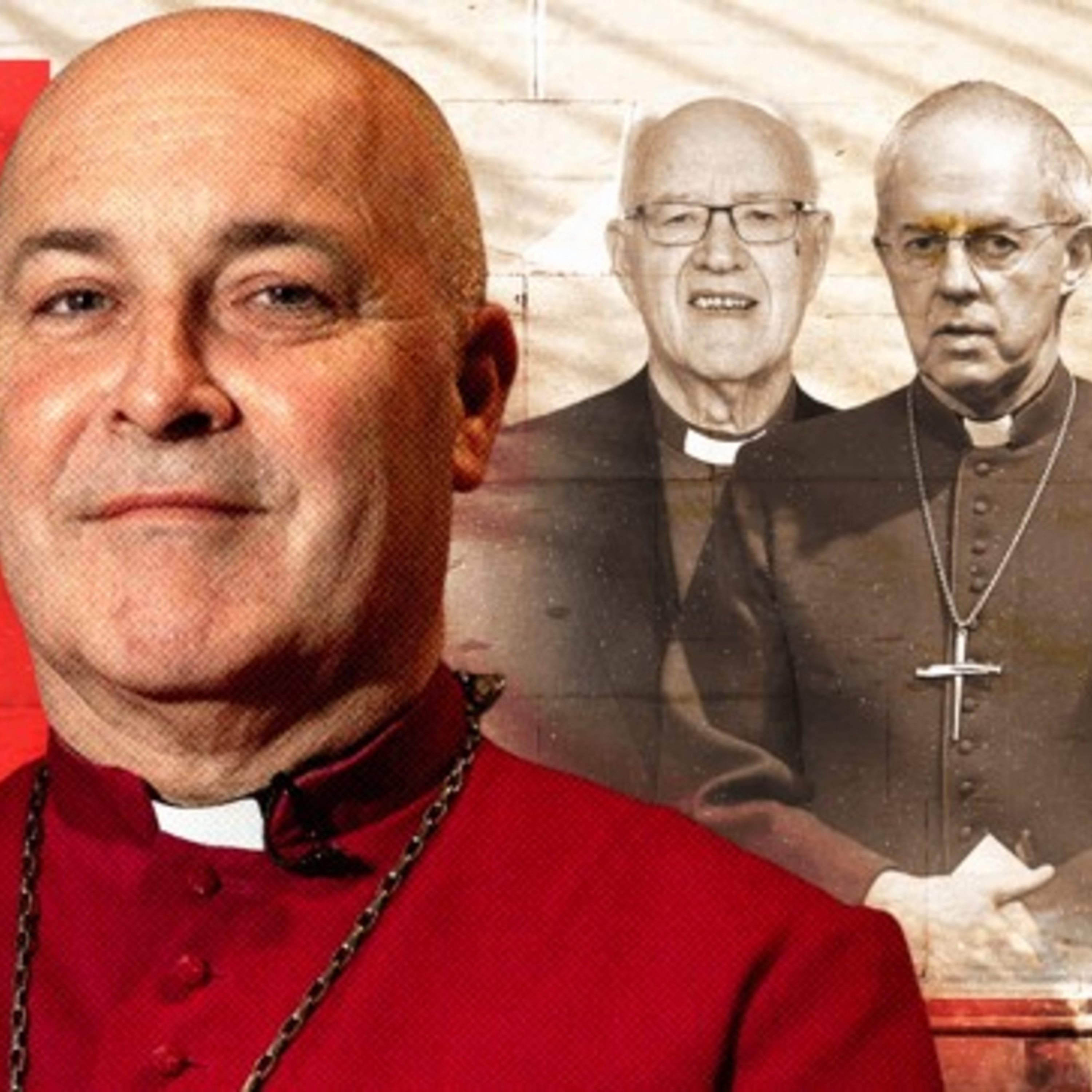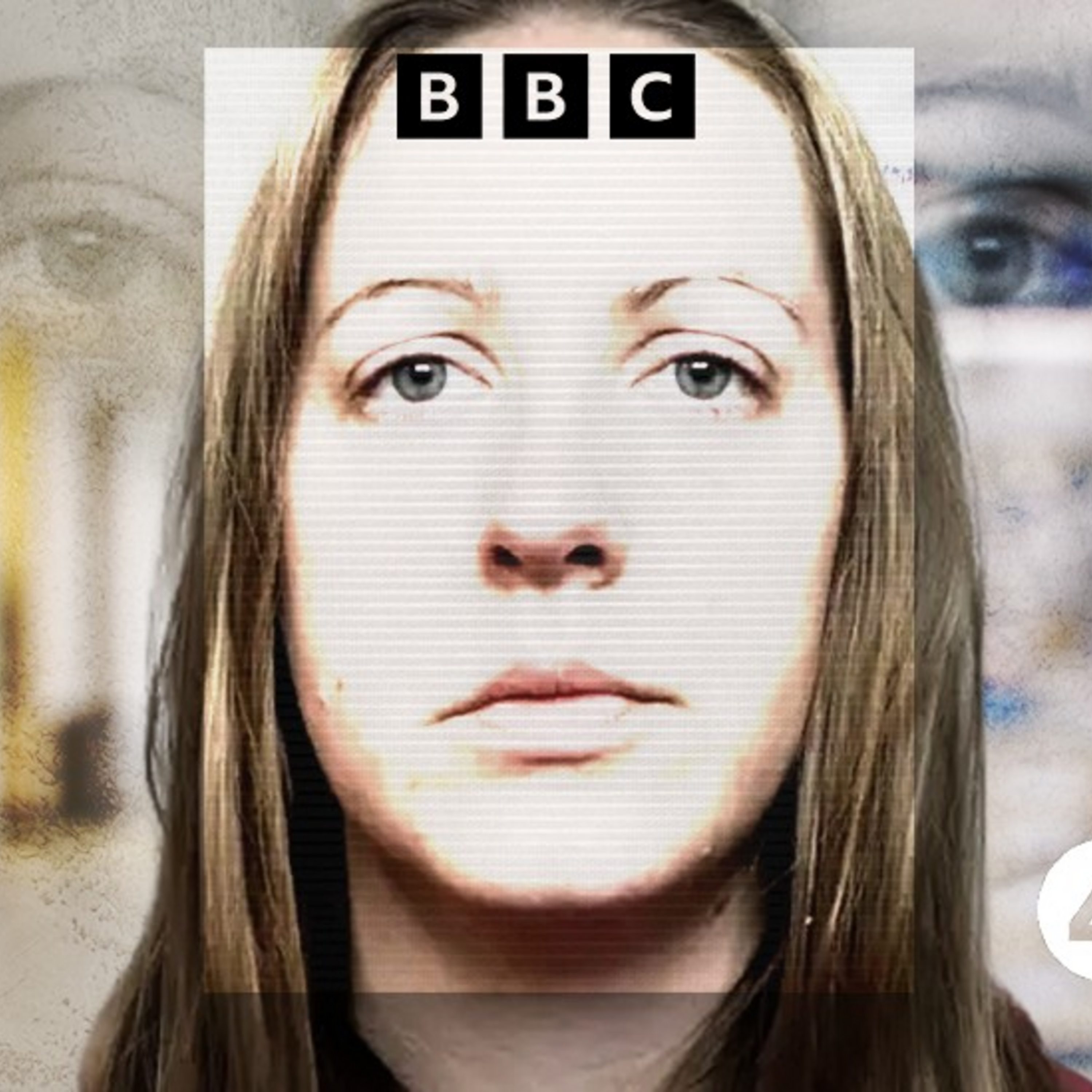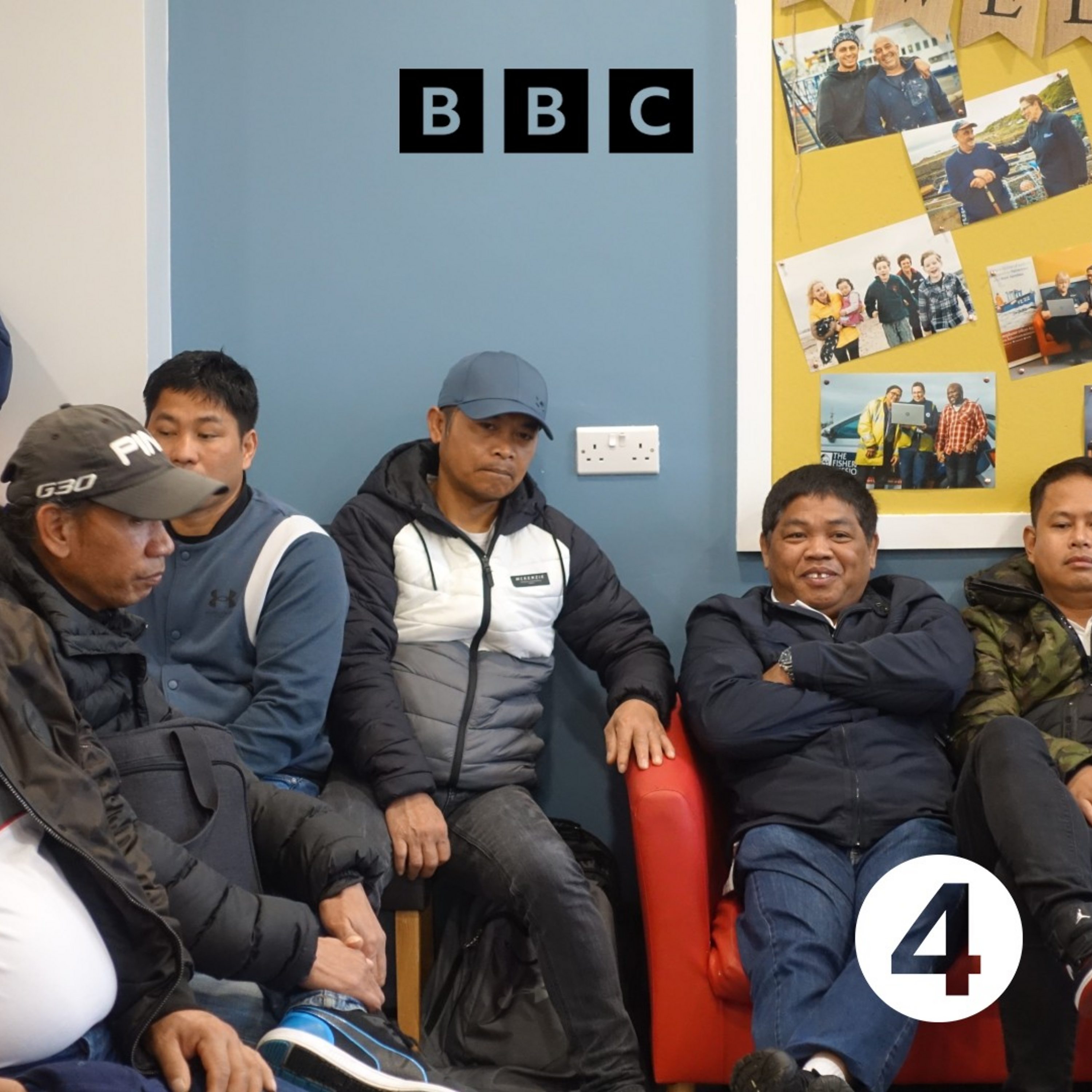Discover File on 4 Investigates
File on 4 Investigates

443 Episodes
Reverse
The BBC's religion editor Aleem Maqbool hears from sexual abuse victims who say they were let down by senior church leaders for decades. Priest David Tudor was allowed to continue working within the Church of England - despite widespread concerns about his behaviour. Now there are calls for the Archbishop of York, Stephen Cottrell to resign over his handling of the case. He is due to take temporary charge of the church in the New Year following the resignation of the Archbishop of Canterbury, Justin Welby. The Church of England says File on 4's investigation into the case of David Tudor has 'revealed a catalogue of past safeguarding decisions, that allowed someone who was considered a risk in the 1980s to return to ministry in the 1990s.' This, they say, should never have happened.Reporter: Aleem Maqbool
Producers: Steve Swann and Hayley Mortimer
Technical producer: Craig Boardman
Production coordinator: Tim Fernley
Editor: Carl Johnston
Universities in the UK are facing a financial crisis, and with fears some may become bankrupt many institutions are making savings by cutting courses and staff numbers. Falling numbers of international students, who pay higher fees than their domestic counterparts, is partly to blame for the funding gap. File on 4 investigates if universities have become too reliant on overseas students, in some cases favouring the ability to pay over academic ability and overlooking the poor English language skills of some of those they enrol - even ignoring concerns over cheating. It also hears from a whistleblower about the multi-million-pound recruitment industry that feeds students from abroad into universities here – all at a cost.Reporter: Paul Kenyon
Producer: Fergus Hewison
Technical Producer: Craig Boardman
Production Coordinator: Tim Fernley
Editor: Carl Johnston
The government has pledged to stop using hotels to house asylum seekers. But in early November nearly three hundred people were moved into a hotel in Altrincham in Greater Manchester. The decision has provoked widespread concerns from the community and there are fears that far right protestors could target the premises. It follows violent demonstrations outside hotels in Rotherham, Hull, Tamworth, Manchester, Aldershot and Bristol in the summer. Hotel accommodation is often provided in some of the UK’s poorest communities where residents are already facing difficulties in accessing vital services. So what is the government’s plan to stop the use of hotel accommodation? And when will it end? File on 4 hears from some of those who live in the hotels – and from the communities who live nearby – and discovers who’s profiting from the asylum business. Reporter: Datshiane Navanayagam
Producer: Vicky Carter
Technical Producer: Craig Boardman
Production Coordinators: Tim Fernley and Ellie Dover
Editor: Carl JohnstonThis programme contains descriptions of graphic violence. Details of organisations offering information and support are available at:
www.bbc.co.uk/actionline
A series of scandals involving babies and mothers being harmed in hospital have shaken some people’s confidence in NHS maternity care. As a result, many women are looking for alternatives when they give birth. Some are seeking help from outside of the NHS; including paying independent midwives, and even ‘freebirthing’, where they receive no medical support at all. But how safe is this, and is more regulation needed?
Presenters: Rachel Stonehouse and Matthew Hill
Producer: Fergus Hewison
Production co-ordinator: Tim Fernley
Technical producer: Richard Hannaford
Editor: Carl Johnson
File on 4 investigates the cosmetic beauty trade after the first death in the UK following a liquid BBL procedure. Jane Deith meets women who have been disfigured by this and other cosmetic procedures, and considers why existing regulation is struggling to keep up with a growing industry. A beauty salon in Clapham, London is exposed for the first time in this programme by a trainee who is horrified by what she witnesses. Several women have complained, claiming they were injured and disfigured by the treatment they received there. .Reporter: Jane Deith
Producer: Kate West
Technical Producer: Richard Hannaford
Production Coordinator: Tim Fernley
Editor: Clare Fordham
When the rock band Oasis announced they were reuniting, 10 million fans from all over the world joined the queue for tickets. It was the UK’s biggest ever concert launch. Tickets quickly sold out and within hours, many were being offered for sale on secondary ticketing sites at vastly inflated prices. File on 4 investigates the online ticketing market to discover who's ahead of you in the queue - and how they're getting there.Reporter: Adrian Goldberg
Producer: Hayley Mortimer
Technical Producer: Richard Hannaford
Production Coordinator: Tim Fernley
Editor: Carl Johnston
The number of people being recalled to prison after they’ve been released has nearly doubled in recent years. It has come at a significant cost to the public – but has it made the public significantly safer? Most recalls aren’t for further offending. Could the gains made by the early release scheme be undermined by the huge number of people being recalled to prison?Former prisoner and filmmaker Chris Atkins investigates the opaque world of prison recalls. He speaks to prison reform charities who say arbitrary recalls drag many further into a cycle of crisis and crime and follows one troubled prisoner over five years, who is recalled four times despite never being charged with any new crimes.Reporter: Chris Atkins
Producer: Alys Harte
Technical Producer: Richard Hannaford
Production Coordinator: Tim Fernley
Editor: Clare Fordham
File on 4 examines some of the most contentious statistical, scientific and medical evidence in the Lucy Letby trial. The programme reveals new concerns involving medical evidence presented in court where Letby was convicted of murdering seven babies and attempting to murder seven others. Reporter: Stephanie Hegarty
Producers: Fay Nurse, Ben Robinson and Hayley Mortimer
Technical Producers: Richard Hannaford and Nicky Edwards
Production Coordinator: Tim Fernley
Editor: Carl Johnston
Mosques and hotels housing asylum seekers came under attack during the riots that swept across the country earlier this month. The courts have been tough on violent disorder, but File on 4 examines how tackling the possible root causes may require an even stronger effort. Tensions over immigration are still simmering, particularly in areas that have long been in economic decline. Paul Kenyon reports.Producer: Hayley Mortimer
Technical Producer: Nicky Edwards
Production Coordinator: Tim Fernley
Editor: Alys Harte
Fishermen from the Philippines, Ghana and Sri Lanka speak out about how badly, they say, they were treated by a Scottish fishing company that hired them. Most of the fishermen have been waiting in the UK for more than 10 years for their case to be heard. Despite two extensive police investigations, no convictions have been secured for human trafficking or modern slavery. This is the first time the fishermen have spoken out. Reporter and Producer Monica Whitlock.
Music by Jon Nicholls.
Mix and Sound Design by Tom Brignell.
Production Coordinator: Tim Fernley.
Editor Alys Harte.Image: Fishermen from the Philippines and Ghana who worked on scallop boats.
Over three decades, a priest assessed as posing a risk of “significant harm” to children and vulnerable people worked in the Church of England. But allegations against him didn’t stick, leading to him remaining in post until after he was offered a substantial pay-off. The surprising manner in which he finally left in 2022 raises serious questions about the judgement of Church leaders.If you have been affected by sexual abuse or violence, details of help and support are available at bbc.co.uk/actionline.Reporter: Aleem Maqbool
Producers: Steve Swann and Fergus Hewison
Technical Production: Richard Hannaford
Production Coordinator: Tim Fernley
Editor: Carl Johnston
Camp Lejeune is a vast US Marine Corps base in North Carolina. It’s been in operation since the 1940s and covers a massive 240 square miles. But for years it hid a secret. For decades, its water supply was contaminated with harmful chemicals found to increase the risk of some cancers. It’s estimated that one million people might have been exposed to the toxic water. But it wasn’t just American personnel who were based at Camp Lejeune. Soldiers from all over the world - including from the UK - also spent time there on training exercises and exchange programmes. Emma Forde hears from the British veterans and their families who lived and worked on the base and have since suffered serious health problems or seen loved ones die from conditions associated with exposure to the water. But despite a compensation scheme for victims being widely reported in the US, there are concerns that those from the UK are still unaware of the serious health risks they were exposed to. And time is running out.Reporter: Emma Forde
Producer: Andrew Picken
Technical Producer: Richard Hannaford
Production Coordinators: Ellie Dover & Tim Fernley
Editor: Carl JohnstonImage: Royal Marine Captain Joe House and Captain Jonathan Lear handing over to each other at Camp Lejeune.
Project Rescue Children claims to save children from trafficking and abuse, but the BBC has uncovered evidence of false and misleading social media posts. The charity's director, Adam Whittington, has raised thousands of pounds from sponsors and donors around the world. But the BBC has found that unsuspecting children are being used as props, and the rescue centres have no children. Project Rescue Children rejects the BBC's findings and says its work has benefitted hundreds of children worldwide.Reporter: Hayley Mortimer
Producer: Kate West
Assistant Producer: Katy Ling
Technical Producer: Richard Hannaford
Impact Producer: Melanie Stewart-Smith
Production Coordinator: Tim Fernley
Editor: Carl Johnston
There are more empty homes than homeless households in this country. Why?Filled with cobwebs, windows broken, and rats scurrying about in their overgrown gardens, the UK has hundreds of thousands of ghost houses - properties where no one lives. The UK also has the worst homelessness problem in the rich world. So could we use those empty homes for the people in dire need of a home?Simon Maybin investigates the phenomenon of empty homes and, over nine months, follows the work of someone trying to turn unused properties into homes for families among the record numbers who are now homeless.Reporter/producer: Simon Maybin
Technical producer: Neil Churchill
Production coordinators: Ellie Dover & Tim Fernley
Editor: Richard Vadon
New laws aimed at preventing protestors causing disruption, more severe punishments and fewer defences in court have led some to question if the freedom to protest is coming under threat. Josephine Casserly investigates the growing volume of prosecutions against environmental protestors and examines how the criminal justice system is dealing with such cases. She also examines the increasing use of private injunctions by corporations and public authorities to restrict protests at locations such as public roads and oil terminals. They say the orders are necessary to prevent disruption caused by tactics including walking slowly down roads and blocking entrances to businesses, but lawyers acting for protestors say they amount to a "privatised system of justice." Reporter: Josephine Casserly
Producer: Tom Wall
Production Coordinators: Ellie Dover & Tim Fernley
Editor: Carl Johnston
There are two compensation schemes for veterans who’ve suffered injury or illness as a result of service - the Armed Forces Compensation Scheme - or AFCS - and the War Pension Scheme. The schemes are managed by Veterans UK which is an organisation run by the Ministry of Defence.But veterans have long criticised both schemes. Some say they reject claims unfairly, and are slow to resolve them. File on 4 has been told in some cases it’s taken almost 12 years for a final decision to be made. How does the system work? And what is the impact on veterans who claim they have to fight for financial compensation for conditions they say are a result of their service? File on 4 hears from one ex-servicemen whose claim took over seven years to resolve, and from the family of another former soldier who took his life after his claim for PTSD was repeatedly turned down.If you are affected by anything in this programme, details of organisations offering support with mental health and self-harm, or feelings of despair, are available at bbc.co.uk/actionline.Producer: Vicky Carter
Reporter: Datshiane Navanayagam
Technical producer: Richard Hannaford
Production co-ordinator: Tim Fernley and Ellie Dover
Editor: Carl Johnston
In the headlines about NHS waiting lists, children don’t often get a mention. Yet hundreds of thousands are waiting to start hospital for treatment. Jane Deith investigates the reasons for the gap between adult and paediatric surgery. She hears from children whose conditions are deteriorating, some of whom could be left inoperable if they aren’t operated on soon.
NHS leaders admit long waits can have life-long consequences for young people’s development and say hospitals are working hard to tackle the backlog. But surgeons and doctors warn that in the race to cut waiting lists, children risk being left behind.Reporter: Jane Deith
Producer: Alys Harte
Technical producer: Craig Boardman
Production co-ordinator: Tim Fernley
Editor: Carl Johnston
The most senior family court judge in England has described the growing use of Deprivation of Liberty orders for vulnerable children as a 'crisis.' File on 4 hears from young people who were held under the order supposedly for their own safety. But they say they were under constant supervision, denied access to their phones and the internet and kept away from their families. Some say they were subjected to physical restraints and even supervised when they were having a shower. And one teenager who was on a Deprivation of Liberty order tells the programme he preferred being in prison.Reporter: Ashley John-Baptiste
Producer: Phil Marzouk
Technical Producer: Craig Boardman
Production coordinator: Ellie Dover
Editor: Carl Johnston
There are some two million people with long Covid in the UK - and most of them - around one and a half million - have symptoms that interfere with day to day activities. Fatigue, breathlessness, heart palpitations and severe dizziness are just some of the conditions people experience.Currently there’s no test for long covid and it could be years before we know for sure how best to treat the condition. This struggle to get help is leaving some very unwell people desperate - and willing to try anything to get better. There are treatments to wash your blood, high pressure oxygen chambers normally used by deep sea divers. A rainbow of supplements. All with varying degrees of evidence. And perhaps most strongly dividing opinion - programmes that claim to retrain long Covid patients' brains to stop their symptoms. They say they can help people recover from illness by rewiring the brain using techniques to influence physical changes in the body. Rachel Schraer - the BBC's health and disinformation correspondent - hears from people with long Covid who say the programmes didn't work and in some cases made them feel worse. Others say they fully recovered.
Reporter: Rachel Schraer
Producer: Paul Grant
Technical producers: Cameron Ward and Nicky Edwards
Production co-ordinator: Tim Fernley
Editor: Carl Johnston
Manchester City are dominating English football, with a trophy cabinet full of silverware. The club’s success has been bankrolled by money from Abu Dhabi. Now Newcastle United have followed in their wake, with backing from a Saudi consortium transforming a sleeping giant of English football into perhaps the world’s richest club. But with the money comes accusations that the clubs are being used to launder the reputations of repressive regimes accused of human rights abuses, and that the cash from the two oil rich states is being used to exert political influence locally and nationally in the UK.Reporter: Adrian Goldberg
Producer: Fergus Hewison
Technical Producer: Craig Boardman
Production coordinator: Tim Fernley
Editor: Carl Johnston
Top Podcasts
The Best New Comedy Podcast Right Now – June 2024The Best News Podcast Right Now – June 2024The Best New Business Podcast Right Now – June 2024The Best New Sports Podcast Right Now – June 2024The Best New True Crime Podcast Right Now – June 2024The Best New Joe Rogan Experience Podcast Right Now – June 20The Best New Dan Bongino Show Podcast Right Now – June 20The Best New Mark Levin Podcast – June 2024
 United States
United States







Am I supposed to empathise with these people?
This is all incredibly racist.
This is an episode of Front Row!!
Wrong file attached! This is Front Row!!!
... at what point do you stop talking about Abba?
Very good episode, but why did the reporter feel the need to inform us that Amanda Fowler is an indigenous Australian? It is completely immaterial with regards to the story bring told.
Did the racing at Uttoxeter, on the day after the Cheltenham Gold Cup, cause a spike in infections?